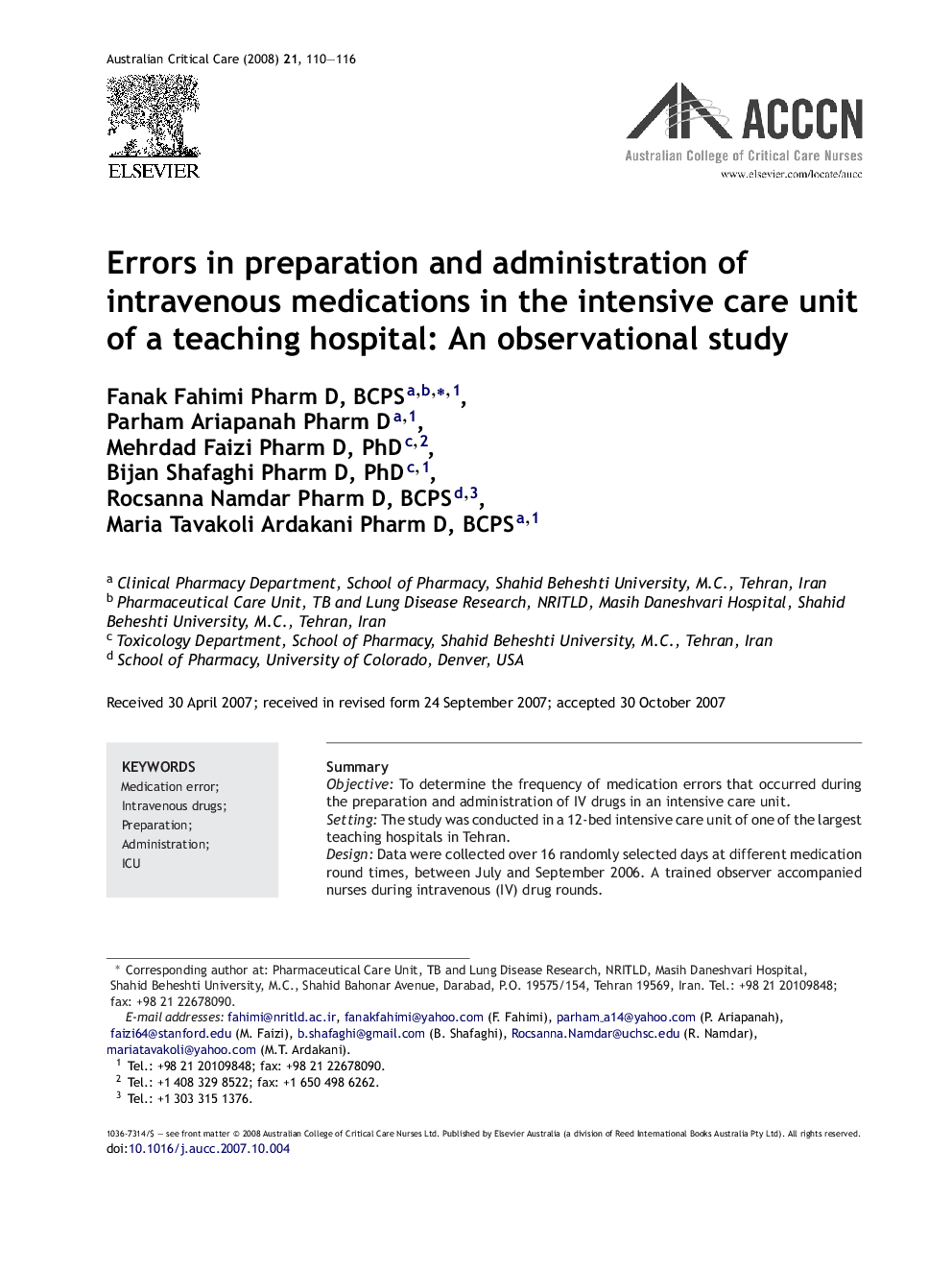| کد مقاله | کد نشریه | سال انتشار | مقاله انگلیسی | نسخه تمام متن |
|---|---|---|---|---|
| 2606871 | 1134225 | 2008 | 7 صفحه PDF | دانلود رایگان |

SummaryObjectiveTo determine the frequency of medication errors that occurred during the preparation and administration of IV drugs in an intensive care unit.SettingThe study was conducted in a 12-bed intensive care unit of one of the largest teaching hospitals in Tehran.DesignData were collected over 16 randomly selected days at different medication round times, between July and September 2006. A trained observer accompanied nurses during intravenous (IV) drug rounds.Medication errors were recorded during the observation times of IV drug administration and preparation. Drugs with the highest rate of use in the intensive care unit (ICU) were selected. Details of the process of preparation and administration of the selected drugs were compared to an informed checklist which was prepared using reference books and manufacturers’ instructions.ResultsWe observed a total of 524 preparations and administrations. The calculated number of opportunities for error was 4040. The number of errors identified were 380/4040 (9.4%). Of those, 33.6% were related to the preparation process and 66.4% to the administration process. The most common type of error (43.4%) was the injection of bolus doses faster than the recommended rate. Amikacin was involved in the highest rate of error (11%) among all the selected medications. It was found that the IV rounds conducted at 9:a.m. had the highest rate of error (19.8%). No significant correlation was found between the rate of error and the nurses’ age, sex, qualification, work experience, marital status, and type of working contract (permanent or temporary).ConclusionsSince our system is devoid of a well-organized reporting system, errors are not detected and consequently not prevented. Administrators need to take the initiative of developing systems that guarantee safe medication administration.
Journal: Australian Critical Care - Volume 21, Issue 2, May 2008, Pages 110–116